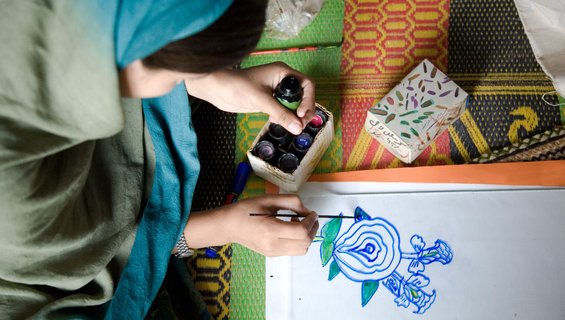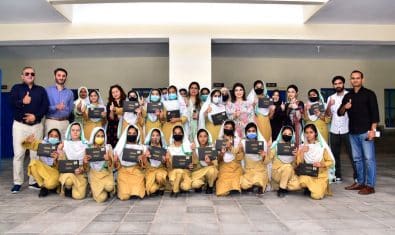Despite great strides in recent years, gender parity remains an elusive goal globally. According to the World Economic Forum’s Global Gender Gap Report 2021, “Another generation of women will have to wait for gender parity…as the impact of the COVID-19 pandemic continues to be felt, closing the global gender gap has increased by a generation from 99.5 years to 135.6 years.”
Gender disparity, or the gender gap, is the difference between women and men as reflected in social, political, intellectual, cultural, or economic attainments or attitudes. While Pakistan comes within the lower end of the Global Gender Gap rankings, at 153rd position out of 156 countries ranked, the Federal Government has recently taken initiatives to encourage women to enter the business workforce.
To date, around Rs1 billion has been distributed amongst women entrepreneurs, who qualified under the Youth Entrepreneurship Scheme (YES) of Kamyab Jawan Programme (KJP).
However, in order to achieve gender parity, or at least close the gap somewhat, it is essential that the change comes from a grassroots level. Women in Pakistan are 10 times more involved in household chores, child, and elderly care than men. This means more Pakistani families must start accepting women as equal members; they must encourage the women in their family unit to play an active role in society.
This means giving women due emancipation and empowerment through legislative, administrative, social, political, and economic means. Women constitute 49% of Pakistan’s population, but only 24% of the labor face. One much-neglected factor and, consequently, a challenge is the lack of ‘enabling labor legislation’.
Legislation prohibiting workplace discrimination, including harassment and guaranteeing pay equality, even when implemented in a lackluster way, has a symbolic significance. Moreover, this leads towards an attitudinal change by shaping public attitudes, and allows inspection by labor departments and court action for enforcement.
That said, there have been significant changes, especially with the rise of the internet and the digitalization of commerce. Pakistan’s e-commerce market size in the first quarter of the fiscal year 2021 witnessed a growth of over 35 percent, which shows consumer adaptability towards online businesses. What this shows is that e-commerce can play a crucial role in empowering women and helping shrink the gender gap.
This can be witnessed in the role played by Daraz, Pakistan’s largest e-commerce player. So far, Daraz has generated over 2,000 women seller leads with the launch of Ibtida, facilitating women entrepreneurs to set up their stores on Daraz, and providing them easy access to Daraz University. The latter is especially significant as it helps educate women sellers on the ins and outs of the online marketplace.
These women entrepreneurs now have access to Daraz’s impressive customer base of 6 million monthly users, all from the comfort and ease of their homes. On average, women entrepreneurs on Daraz see a monthly income of Rs. 30,000, which is much higher than Pakistan’s average for working women. Take, for example, Husna Javed, a woman Daraz seller from Karachi.
Along with the help of her daughters, Husna supports her husband in providing for their family and helping to run the house. She is a proud mother and wife, and is a great example of an empowered Pakistani woman who has broken gender stereotypes. Women like Husna are trailblazers for other women looking to empower themselves and contribute to the welfare of their families, as well as the national economy.
Daraz has also leveraged its strength as Pakistan’s largest online marketplace to partner with Femprow, a social enterprise that helps advance women’s professional growth and economic empowerment through offline and online entrepreneurship education, capacity building, business, and community support.
This collaboration will facilitate newly registered women sellers, helping them establish their shops on the platform, and thereby boosting their growth in terms of sales and reach. As per the partnership, customized training will help these sellers improve in the areas of business ethics, as well as highlighting the importance of social media along with other basic guidance required.
Femprow’s growing community of women entrepreneurs also registered over 150 women entrepreneurs with Daraz; they will be facilitated with this partnership to establish stores on the biggest online marketplace in Pakistan.
While admittedly there is a long road ahead of us in reaching true gender parity, it is only by providing the women citizens of the country every opportunity to succeed that we can start to reduce the gender gap. Luckily, the Digital Revolution has opened up new avenues and methods for women entrepreneurs to realize their dreams.
No better example of this can exist than Daraz, which is playing its part as Pakistan’s leading e-commerce company by providing women entrepreneurs with a platform to scale their businesses and reach more customers on a level playing field. By continuing to encourage women entrepreneurs, Pakistan will surely achieve gender parity in the future.





















